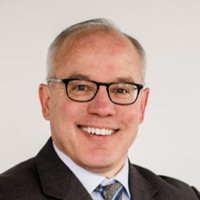By Meridith Yahl
NKyTribune health reporter
In the past five months many new stressors have changed our lives and affected all of us in some way. To discuss the impact of these stressors on the mental health of our region, The Metropolitan Club of Covington hosted a webinar, “Your Mind Your Business.”

Steinhauser
Those with mental health disorders or addiction have especially been hit hard, said the panel participants.
“We are not meant to be isolated as human beings. We are social creatures. We need each other, especially folks that are in a 12-step fellowship and other sorts of support groups. It has been a real struggle and relapse rates are high, suicide rates are high. This has been a big struggle for everybody, but especially in the people that we serve,” says Trevor Steinhauser, Advocate for Mental Health & Addiction, Host of Stigmatized, Behavioral Health Podcast.
At the Lindner Center of Hope, Maria Sulcer, Outreach Specialist. has seen an increase in anxiety and depression in patients because of all the added stressors.
Because of the COVID-19 outbreak, the unit which treats those with both addiction and medical issues was cut to make room for COVID-19 patients, says Dr. Mike Kalfas, Addiction Medicine Physician, St. Elizabeth Physicians.

Maria Sulcer
“I think that’s just symbolic of our tendency whenever there’s a budget crunch, whenever there’s a crisis of any kind, mental health, addiction, all those services get pushed to the back burner. What you don’t realize is you’re setting up a smoldering fire that is going to flame later when you do that. It’s by isolation, by the removal of services, by the relapses that occur of those in recovery and we don’t make this a priority. We forgot about our epidemic in the midst of our pandemic,” Dr. Kalfas says.
However, the pandemic has not affected the focus of treatment but has impacted its implementation.
“The focus is still the same, for sobriety and living, about living the best life you can live,” says Dr. Kalfas.
What has changed are treatments. There was no face to face appointments during the first couple of months except injections. Instead therapy was conducted over video, which has turned into a positive for his clients.
“I’ve gotten more efficient and now that we’re allowing patients back in, I’m actually able to see more because I’m developing a way to see patients in real-time and video,” Dr. Kalfas says.
Having some appointments by video relieves the burden of transportation and time on his patients. He says using the technology the right way, will bring he and his clients together, not further apart, and provide stability.

Chris Faust
Sulcer points out that there is anxiety getting into treatment. Families are waiting longer, concerned about safety issues because of the pandemic.
Relapses and those seeking addiction services has increased 30-40% for Dr. Kalfas. People are coming in sicker and in more advanced states he says, because they did not want to go to the Emergency Room during this pandemic.
“I have had to refer more people from the initial interview to go to inpatient or residential treatment first, before an outpatient center,” says Dr. Kalfas. This sets them into a further downward spiral.
Since the start of the pandemic these mental health professionals and business leaders have come into a new awareness or understanding about themselves. Their awareness’s can benefit all of us by providing coping skills.
Because she sits at her computer all day, Sulcer makes it a point to get out.
“It challenges my body and spirit. I’ve got to look at how I’m feeling, how I’m thinking, and how I’m doing,” she says. “It is a constant self-awareness situation. And also, checking in with others, making sure they’re doing ok. Reaching out, not staying in myself, but reaching out to other people and seeing what’s going on for them.”

Dr. Mike Kalfas
Dr. Kalfas has always advocated for a healthy response to opioid addiction, meaning exercise and diet which raise endorphin levels. Making healthy choices will help anyone.
“Self-care becomes even more important. We’ve got to remind people to do it because they just get disconnected from time,” he says.
Steinhauser is appreciating the humanity in working from home.
“Doing Zoom calls our dogs run around or our kids are running around and it’s a beautiful thing. You can get to see how people are in their lives and that is bringing a human element to business and work; that in life, it’s okay to have your house a mess. This is real stuff; this is what we’re dealing with. We don’t want to put up a disingenuous look to it, it is what it is, and we need to celebrate what we have going on because everybody is struggling to keep it together,” says Steinhauser.
“I’m seeing more of the human side start to come out of people and some very positive things are coming together,” says Chris Faust, President and CEO, Clovernook Center for the Blind & Visually Impaired.
“It changes your perspective and your view on what’s really important. I think we are now starting to place a little more priority on what’s real and what’s necessary. Hopefully that will carry on and people will be more human as we move forward,” says Faust.
















